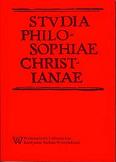Koncepcja najlepszego ustroju politycznego według Arystotelesa
The concept of the ideal political constitution in Aristotle
Author(s): Paweł BorkowskiSubject(s): Philosophy
Published by: Wydawnictwo Naukowe Uniwersytetu Kardynała Stefana Wyszyńskiego w Warszawie
Keywords: Aristotle; Aristotle - political philosophy; Aristotle – political theory; ideal government; political constitutions; Hellenic city state
Summary/Abstract: The aim of the paper is to examine Aristotle’s ideas concerning the best form of government, or constitution of a political community. As emerged from the research, Aristotle distinguishes and discusses four types of the ideal constitution, namely: i) an absolutely perfect or ideal system of government, one which he identifies as either a kingship or aristocracy; ii) a universally ideal government, one which is functionally based upon the middle class of the citizenry and is not to be confused with polity intended as a more specific type of constitution; iii) a relatively ideal government, a form adapted to a particular condition of either the entire population or some of its parts; iv) and finally, a technically ideal government, which is coherently organized in accordance with a number of precisely defined postulates. One general conclusion of the study is that Aristotle, far from prescribing any perfect constitution apparently suited to each city state, rather tends to combine requirements of reason and virtue with actual circumstances of ordinary life.
Journal: Studia Philosophiae Christianae
- Issue Year: 48/2012
- Issue No: 3
- Page Range: 5-24
- Page Count: 20
- Language: Polish

